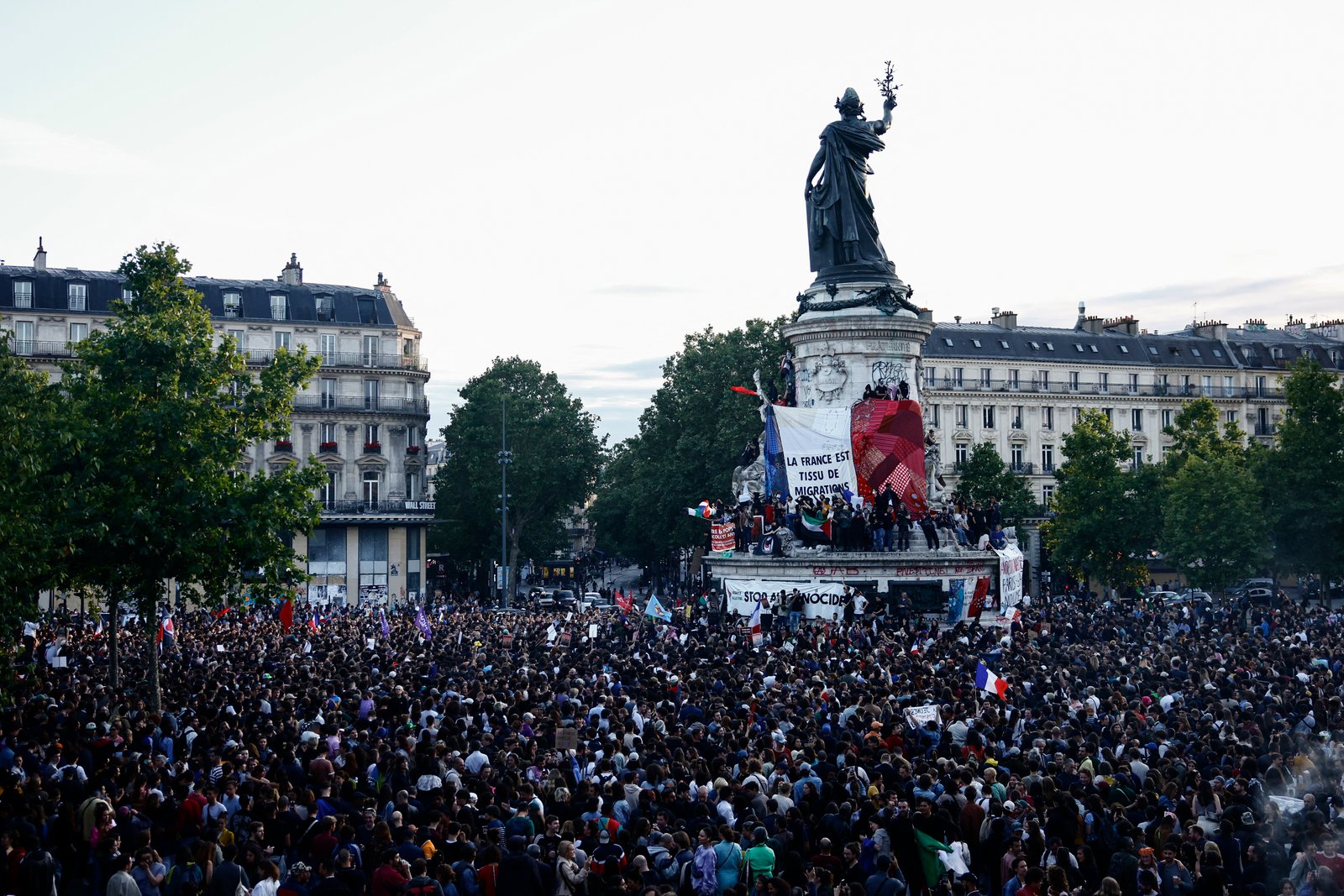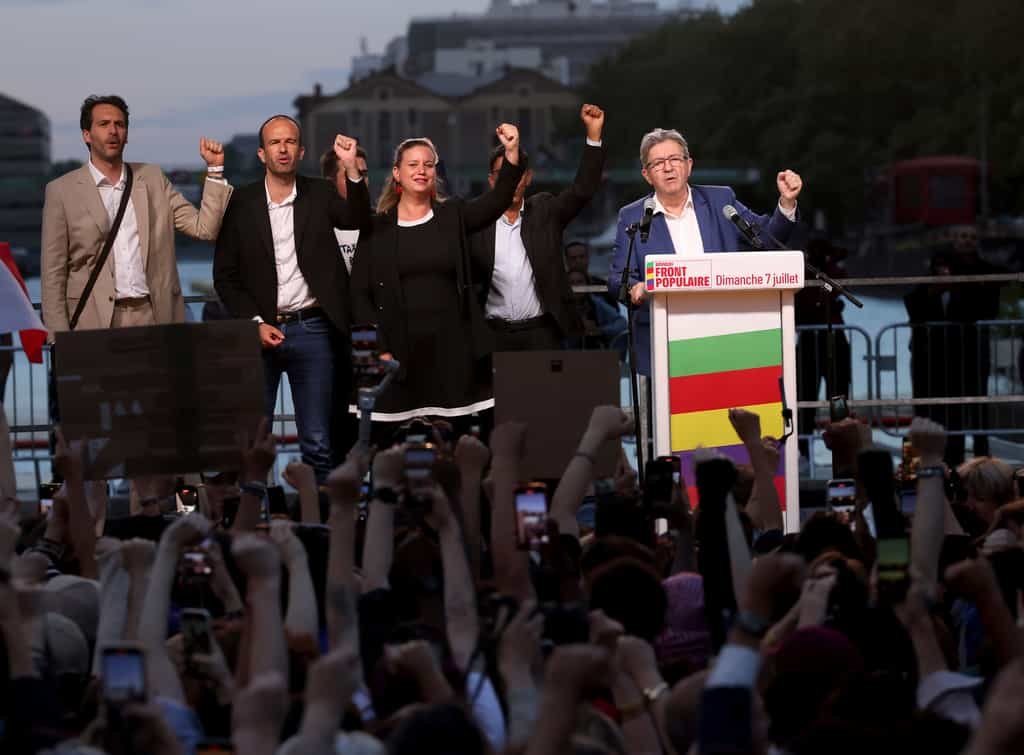The recent election in France has left both political analysts and the general populace stunned. The unexpected results have not only shifted the political landscape but have also raised numerous questions about the future direction of the country. This article delves into what transpired during this shocking election, the factors that contributed to the surprising outcomes, and what lies ahead for France.

The Lead-Up to the Election
In the months leading up to the election, France was abuzz with anticipation. The traditional political powerhouses, such as the centrist La République En Marche! (LREM) and the right-wing Les Républicains (LR), were expected to dominate the polls. However, a series of socio-economic challenges, including the ongoing impact of the COVID-19 pandemic, rising unemployment rates, and increasing public dissatisfaction with the government, set the stage for an unpredictable election.
The Surprising Results
When the election results were announced, it became clear that the political landscape in France had dramatically shifted. A previously underestimated party, the left-wing La France Insoumise (LFI), emerged as a significant force, capturing a substantial number of seats. Additionally, the far-right National Rally (RN) made unexpected gains, reflecting growing public sentiment towards nationalist policies.

Factors Contributing to the Outcome:
-
Economic Uncertainty: The economic repercussions of the pandemic have been profound. Many voters, feeling the pinch of economic instability, were drawn to parties promising radical changes and robust economic policies. LFI's platform, which emphasized social justice and economic reform, resonated with a large portion of the electorate.
-
Public Discontent: Widespread dissatisfaction with the current government's handling of various issues, including the pandemic response and economic recovery, drove voters to seek alternatives. The traditional parties were perceived as out of touch with the common citizen's struggles, leading to a shift in voter loyalty.
-
Rise of Populism: The rise of populist sentiments, not just in France but globally, has fueled the success of parties like RN. Their strong stance on immigration and national sovereignty appealed to voters concerned about national identity and security.
-
Youth Vote: The younger generation, increasingly disillusioned with the status quo, played a crucial role in the election. Their support for progressive policies, particularly those related to climate change and social justice, bolstered the popularity of parties like LFI.
Key Winners and Losers
Winners:
- La France Insoumise (LFI): Led by Jean-Luc Mélenchon, LFI's focus on socio-economic reforms and environmental policies struck a chord with voters, leading to a significant increase in their representation.
- National Rally (RN): Marine Le Pen's party capitalized on nationalist sentiments, making notable gains and solidifying their position as a formidable force in French politics.
Losers:
- La République En Marche! (LREM): The party of incumbent President Emmanuel Macron faced a severe setback, losing numerous seats and failing to maintain its dominance.
- Les Républicains (LR): The traditional right-wing party also suffered losses, unable to capture the public's interest amidst the rising popularity of more extreme positions.

Immediate Reactions
The immediate aftermath of the election was marked by a mix of jubilation and concern. Supporters of the winning parties celebrated their unexpected success, while the established political entities scrambled to understand the reasons behind their poor performance. Analysts began to dissect the results, looking for patterns and insights that could explain the dramatic shift in voter behavior.
What Comes Next?
The results of this election have set the stage for a series of significant changes in French politics. Here are some of the potential developments to watch:
-
Coalition Building: With no single party achieving a clear majority, coalition building will be crucial. The coming weeks will likely see intense negotiations as parties seek to form alliances and secure enough support to govern effectively.
-
Policy Shifts: The rise of LFI and RN suggests that there may be significant policy shifts on the horizon. LFI's emphasis on social and economic reform could lead to increased government intervention in the economy, while RN's nationalist agenda might result in stricter immigration policies and a focus on national sovereignty.
-
Public Response: The public's reaction to these developments will be critical. Continued economic instability or perceived failures by the new government could lead to further political volatility and potential protests.
-
European Relations: France's role in the European Union could also be affected. A government led by LFI or influenced by RN could adopt a more skeptical stance towards EU policies, potentially leading to friction with other member states.
-
Long-Term Implications: The long-term implications of this election are profound. The traditional political order in France has been challenged, and this could herald a new era of political dynamics. Future elections will likely see more diverse and unpredictable outcomes as voters continue to seek alternatives to the status quo.

Conclusion
France's shock election has not only altered the current political landscape but has also set the stage for a potentially transformative period in the nation's history. The unexpected rise of LFI and RN reflects deep-seated public dissatisfaction and a desire for change. As France navigates this new political terrain, the actions of its leaders and the response of its citizens will shape the country's future in profound ways. The world will be watching closely to see how France adapts to these new realities and what it means for the broader geopolitical context.


You must be logged in to post a comment.